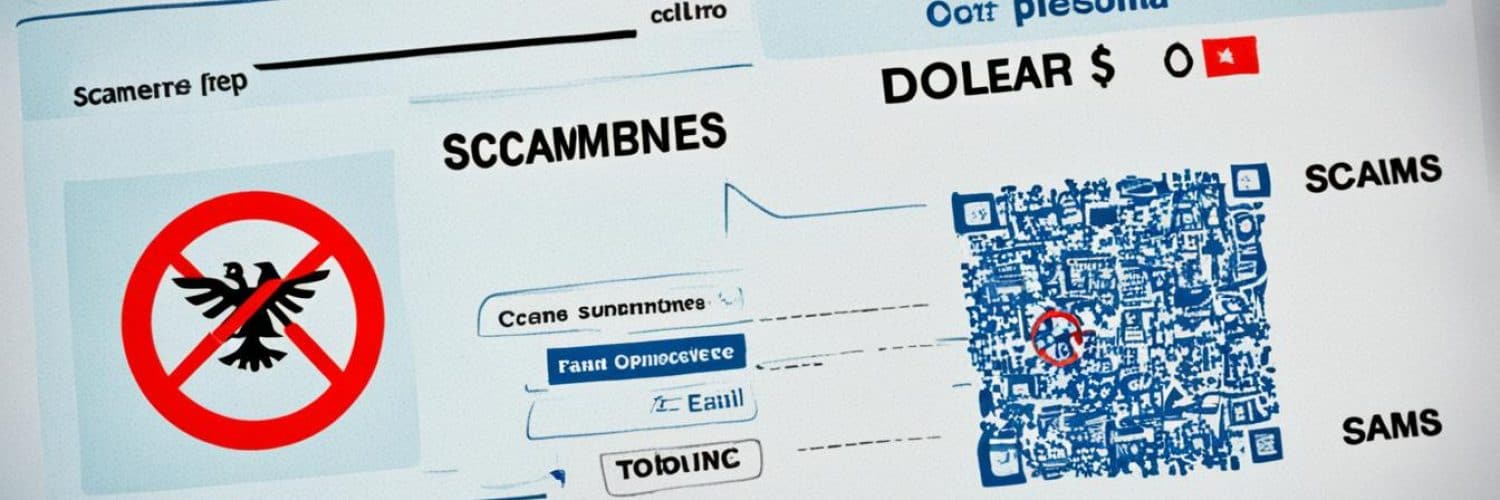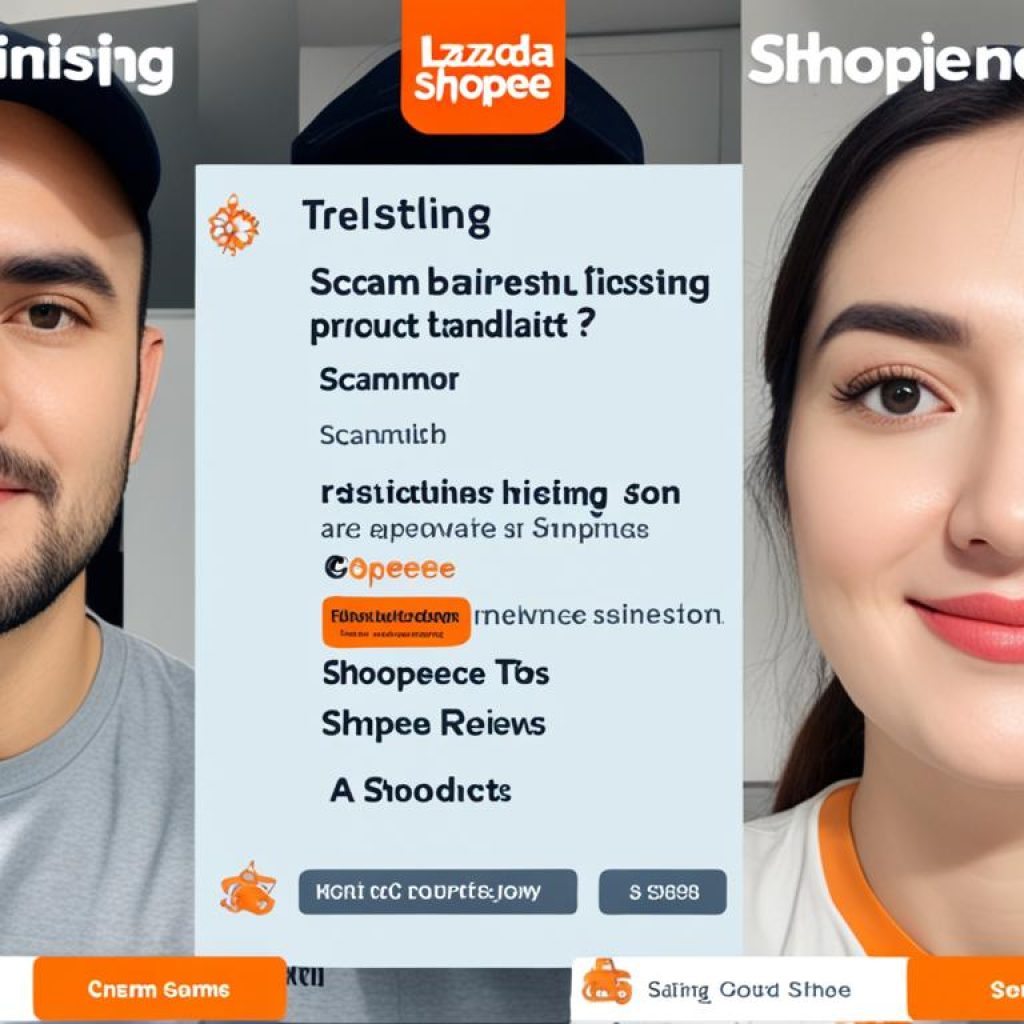Are you aware of the growing problem of online scams in the Philippines? Do you know how to protect yourself from becoming a victim of online fraud?
In this article, we will delve into the world of online scams and provide you with essential tips and information on how to identify and avoid falling prey to online scammers in the Philippines. From e-commerce platforms to job scams and online dating, we will equip you with the knowledge you need to navigate the online landscape safely and confidently.
But first, let’s explore the scope of the issue and understand why it’s crucial to be proactive in spotting online scammers in the Philippines.
Key Takeaways:
- Online scams in the Philippines are a growing problem that requires vigilance and awareness.
- From e-commerce platforms to job scams and online dating, scammers can target individuals in various ways.
- Identifying the red flags and learning how to protect yourself is crucial to staying safe from online fraud.
- By following the tips and guidelines provided in this article, you can navigate the online landscape confidently and avoid being a victim of scams in the Philippines.
Comparing Lazada and Shopee: How to Spot Scams in E-commerce Platforms
When it comes to online shopping in the Philippines, Lazada and Shopee are two popular e-commerce platforms. While these platforms offer convenience and a wide range of products, it is important to be wary of potential scams and fraudulent sellers.
Comparing Lazada and Shopee
To better understand how to spot scams on these platforms, let’s compare Lazada and Shopee in terms of their security measures, seller verification processes, and customer ratings.
| Lazada | Shopee |
|---|---|
| Security Measures | Security Measures |
| – Encrypted payment gateways | – Secure online payment options |
| – Buyer Protection Program | – Buyer Protection Guarantee |
| – Verified sellers | – Shopee Mall for trusted sellers |
| – User reviews | – Ratings and reviews system |
Note: The information in the table is subject to change and may vary depending on the specific features and policies of Lazada and Shopee.
How to Spot Scams on E-commerce Platforms
Regardless of the platform you choose, it is essential to be vigilant to avoid falling victim to online scams. Here are some tips to help you spot potential scams:
- Check seller ratings and reviews: Look for sellers with high ratings and positive reviews from other buyers. Avoid sellers with low ratings or negative feedback.
- Verify seller information: If a seller claims to be a reputable brand or offers products at incredibly low prices, do a quick Google search to verify their legitimacy.
- Be cautious of very low prices: If a deal seems too good to be true, it probably is. Scammers may lure unsuspecting buyers with extremely low prices to steal their money or personal information.
- Use secure payment methods: Stick to secure payment options provided by the platforms. Avoid sellers who ask for direct bank transfers or payments through non-secure channels.
- Watch out for suspicious behavior: Be wary of sellers who pressure you into making quick decisions, ask for personal information, or provide incomplete or vague product descriptions.
Remember, staying informed and using your judgment can go a long way in protecting yourself from online scams.
By following these tips and utilizing the security features provided by e-commerce platforms like Lazada and Shopee, you can enjoy a safe and secure online shopping experience in the Philippines.
Types of Online Job Scams in the Philippines
Online job scams have become a prevalent issue in the Philippines, with scammers taking advantage of job seekers. It’s crucial to understand the different types of online job scams and how to protect yourself from falling victim to online fraud.
1. Fake Job Listings: Scammers post attractive job offers with high salaries and promising benefits. However, these listings are often fake, intended to collect personal information or defraud unsuspecting candidates.
2. Advance Fee Scams: In advance fee scams, scammers ask job seekers to pay a fee for application processing, training, or visa processing. Once the payment is made, the scammers disappear, leaving the victim without a job or their money.
3. Phishing Scams: Phishing scams involve scammers reaching out to job seekers via email or social media, posing as legitimate companies. They request sensitive information such as social security numbers, bank account details, or credit card information, which they use for identity theft or financial fraud.
4. Pyramid Schemes: Some job scams operate as pyramid schemes, where job seekers are promised high returns for recruiting others into the scheme. These schemes are illegal and often result in financial loss for participants.
It is important to stay informed and protect yourself from these online job scams in the Philippines. By being cautious, conducting thorough research on prospective employers, and verifying job offers, you can avoid falling victim to online fraud.
Red Flags to Watch Out for in Online Job Scams
Spotting online job scams in the Philippines can be challenging, but there are several red flags that can help you identify potential scams. By recognizing these warning signs, you can protect yourself from falling victim to online scammers and take the necessary steps to report them.
1. Job Offers That Seem Too Good to Be True
If a job offer promises unrealistically high salaries or benefits that seem too good to be true, it’s likely a scam. Be cautious of opportunities that guarantee effortless wealth or success without any qualifications or experience required.
2. Requests for Upfront Payments
Beware of job postings that ask for upfront payments or fees, especially before any work is performed. Legitimate employers typically do not require candidates to pay for job opportunities, so treat such requests as warning signs of potential scams.
3. Unprofessional Communication
If the person or organization contacting you for a job opportunity uses unprofessional communication methods, such as poorly written emails with grammatical errors or suspicious WhatsApp messages, it could be indicative of a scam. Legitimate employers typically maintain professional communication standards.
4. No Interview Required
In some cases, scammers may skip the interview process altogether and offer you a job directly. This unusual practice should raise suspicion, as most legitimate employers would want to assess your skills and qualifications through an interview or assessment.
Remember, these red flags are not foolproof indicators of scams, but they can help you exercise caution and protect yourself from potential fraud. If you encounter any of these warning signs, it’s essential to report the online scammers to the appropriate authorities.
Reporting online scammers in the Philippines can help prevent others from falling victim to their fraudulent activities. If you come across suspicious job listings or encounters with scammers, report them to the Philippine National Police (PNP) Anti-Cybercrime Group or the National Bureau of Investigation (NBI) Cybercrime Division. Provide as much information as possible, such as screenshots, email communications, and any other evidence that can aid in their investigation.
How to Recognize Red Flags in Online Job Scams
| Red Flags | Description |
|---|---|
| Job Offers That Seem Too Good to Be True | Advertisements promising high salaries or benefits that are unrealistic. |
| Requests for Upfront Payments | Employers asking for payment before any work is performed. |
| Unprofessional Communication | Poorly written emails, grammatical errors, or suspicious messages. |
| No Interview Required | Skipped interview process with immediate job offers. |

By being vigilant and aware of these red flags, you can protect yourself from online job scams in the Philippines. Remember, if something seems too good to be true or raises suspicion, it’s crucial to trust your instincts and investigate further before proceeding.
Tips to Protect Yourself from Online Job Scams in the Philippines
Protecting yourself from online job scams in the Philippines is crucial to avoid falling victim to fraud. By following these tips, you can safeguard your personal and financial information:
- Thorough research on the company: Before applying for a job or providing any personal information, conduct in-depth research on the company. Check its credibility, online presence, and reviews to ensure its legitimacy.
- Use trusted platforms for job searches: Stick to reputable job search platforms that have strict verification processes for employers. Platforms like LinkedIn, Indeed, and Glassdoor can help you find reliable job opportunities.
- Avoid sharing personal information online: Be cautious when sharing personal information online, especially on websites that are not secure. Scammers often use personal data for identity theft and other fraudulent activities.
- Trust your instincts: If a job offer seems too good to be true or raises suspicious red flags, trust your instincts. Listen to your gut feeling and proceed with caution.
- Verify job offers directly with the company: If you receive a job offer, contact the company directly using verified contact information. Avoid relying solely on email communication, as scammers can impersonate legitimate email addresses.
- Check for professionalism in communication: Legitimate job offers usually come from professional recruiters or human resources departments. If the communication is unprofessional, contains grammatical errors, or lacks proper company branding, it may be a scam.
- Avoid upfront payments: Be wary of job offers that require upfront payments or fees. Legitimate employers do not ask for money before hiring or for training purposes.
By implementing these tips, you can protect yourself from online job scams and increase your chances of finding genuine employment opportunities in the Philippines.

The Risks of Online Dating Scams in the Philippines
Online dating scams have become a major concern in the Philippines, with scammers specifically targeting individuals seeking love and friendship online. These scams can have serious consequences, including identity theft, hacking, and even blackmail. It’s essential for anyone engaging in online dating in the Philippines to be aware of the potential risks and take the necessary precautions to protect themselves.
Scammers often create fake profiles on dating websites or social media platforms, using attractive photos and engaging profiles to lure unsuspecting victims. They may establish an emotional connection with their targets, gaining their trust and affection before exploiting them financially or emotionally.
One common tactic used by scammers is the request for money, claiming it is for emergencies, travel expenses, or other personal reasons. They may also deceive their victims into revealing sensitive personal information, such as bank account details or social security numbers, which can then be used for fraudulent activities.
Victims of online dating scams in the Philippines have reported devastating consequences, including financial loss, humiliation, and emotional trauma. To protect yourself from falling victim to these scams, it’s important to be cautious and follow these guidelines:
- Research before entering into an online relationship. Take the time to verify the person’s identity and background, including conducting a reverse image search on their profile picture to check for any matches elsewhere on the internet.
- Never send money or financial information to someone you have only met online, regardless of the reasons they give. Scammers often play on emotions and create fabricated stories to manipulate their victims.
- Guard your personal information. Be cautious about sharing sensitive details that could be used for identity theft or other fraudulent purposes.
- Trust your instincts. If something feels suspicious or too good to be true, it probably is. Listen to your gut feelings and be wary of individuals who rush into a deep emotional connection or ask for personal information too quickly.
- Report any suspected scams. If you encounter a potential scammer, report them to the appropriate authorities or online dating platform. By reporting these incidents, you can help protect others from falling victim to the same scams.
By being vigilant, educating yourself about the risks, and following these precautions, you can minimize the chances of becoming a victim of online dating scams in the Philippines. Remember, it’s important to prioritize your safety and protect yourself from potential harm.
| Scam Type | Description |
|---|---|
| Romance Scams | Scammers create fake profiles and establish romantic relationships with their victims in order to exploit them financially. |
| Identity Theft | Scammers steal personal information from their victims to assume their identity and commit fraud. |
| Advance Fee Fraud | Scammers request money from their victims, often under the pretense of needing financial assistance for various reasons. |
| Blackmail | Scammers obtain compromising information or photos of their victims and threaten to expose them unless a ransom is paid. |
The Challenge of Identifying Fake Online Dating Profiles in the Philippines
Identifying fake online dating profiles in the Philippines can be a daunting task, as scammers employ various tactics to deceive their victims. The rise of online romance scams has prompted private investigators in Manila and Cebu to work diligently in spotting these online fraudsters. However, detecting fake profiles still requires expertise to verify facts and gather clear evidence. This section sheds light on the difficulties involved in distinguishing real profiles from fake ones, underscoring the need for vigilance and thorough investigations.
Tips for Verifying Online Dating Profiles in the Philippines
When it comes to online dating in the Philippines, it’s important to ensure the authenticity of the profiles you come across. To avoid falling victim to online scams and protect yourself from fraudulent individuals, follow these helpful tips:
- Check the right places: While online forums may provide some information about a person, they should not be relied upon as a reliable source for verifying someone’s identity. Instead, consider conducting a real background check by professionals who can gather accurate information.
- Ask the right questions: Engage in meaningful conversations with the individual to gather more information. Ask questions related to their personal and professional life, such as their full name, current address, and employment and education history.
- Verify the information: Once you have obtained the necessary details, take the initiative to verify them independently. Cross-check their name, address, and educational background through official records or trusted sources.
Remember, verifying an online dating profile is crucial to ensure your safety and establish the authenticity of the person you’re interacting with. By conducting proper checks and asking important questions, you can mitigate the risks associated with online scams in the Philippines.
“Verifying the identity of online dating profiles takes more effort than relying on forums or hearsay. Don’t be afraid to ask the right questions and take the necessary steps to verify the information provided. Your safety and peace of mind are worth it.”
Conclusion
Spotting online scammers and protecting yourself from online fraud in the Philippines is essential. Whether it’s e-commerce scams or job and dating scams, understanding the red flags and taking necessary precautions can help prevent falling victim to scams. By following the tips and guidelines provided in this article, you can navigate the online landscape with confidence and avoid the pitfalls of online scams in the Philippines.
When engaging in e-commerce platforms like Lazada and Shopee, be vigilant while distinguishing between legitimate sellers and scammers. The same caution applies to online job searches, where thorough research, verifying job offers, and recognizing red flags can protect you from fraudulent schemes.
Additionally, the risks associated with online dating scams in the Philippines are significant. It is crucial to be aware of the dangers involved and employ necessary measures to safeguard yourself. By understanding the challenges in identifying fake online dating profiles and utilizing professional background checks, you can enhance your ability to verify the authenticity of potential partners.
Remember, prevention is key. By staying informed, staying cautious, and following the measures provided, you can keep yourself safe while navigating the online landscape in the Philippines. Take control of your online presence and protect yourself from online scammers and fraudsters.
FAQ
What are some common online scams in the Philippines?
Common online scams in the Philippines include e-commerce scams, online job scams, and online dating scams.
How can I spot scams on e-commerce platforms like Lazada and Shopee?
To spot scams on e-commerce platforms, look out for suspicious sellers, deals that seem too good to be true, and requests for upfront payments.
What are the different types of online job scams in the Philippines?
The different types of online job scams in the Philippines include fake job listings, advance fee scams, phishing scams, and pyramid schemes.
What are some red flags to watch out for in online job scams?
Red flags in online job scams include job offers that seem too good to be true, requests for upfront payments, unprofessional communication, and no interview required.
How can I protect myself from online job scams in the Philippines?
To protect yourself from online job scams in the Philippines, thoroughly research the company, use trusted platforms for job searches, never share personal information online, trust your instincts, verify job offers directly with the company, check for professionalism in communication, and avoid upfront payments.
What are the risks of online dating scams in the Philippines?
Risks of online dating scams in the Philippines include identity theft, hacking, and blackmail.
Why is it challenging to identify fake online dating profiles in the Philippines?
It can be challenging to identify fake online dating profiles in the Philippines because scammers use various tools to deceive their victims, and verifying the facts requires expertise.
How can I verify the authenticity of an online dating profile in the Philippines?
To verify the authenticity of an online dating profile, check the right places, ask the right questions, and consider a real background check conducted by professionals.
How can I protect myself from online scams in the Philippines?
By being informed, staying vigilant, and following the tips and guidelines provided in this article, you can protect yourself from online scams in the Philippines.








Add comment